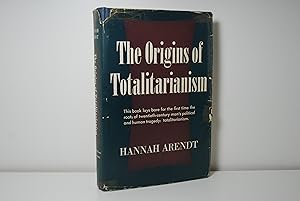

The lifespan of the continental party system was actually quite short. The rise of such movements corresponds to the decline of the continental party system. The movements seized upon the mob in order to instill in the masses that they could become an embodiment of the movement ideal by joining the movement.

They were also more explicitly anti-state, since they had no stake in the party politics that the state mediated. While parties risked degenerating into bureaucracies, movements actively sought to use bureaucratic regimes as models of organization. Pan-Slavism and Pan-Germanism are unique developments in history because they are not parties, but movements.

This first stops men from participating in politics, but when expanded through totalitarianism goes so far as to stamp out all individual private spontaneity and freedom. The bureaucracy rules society through what Arendt calls “pseudomysticism.” Pseudomysticism arises from the efficiency with which bureaucracy operates: in rule through decree, all that matters is the “brutal, naked event” which cannot be explained by reason or politics, but emanates from a power above and not beholden to society.

The corrupt civil servants may be a parasite on society, but they do not rule it. She makes the important distinction between a bureaucracy proper and the deformation or corruption of civil services. Here Arendt further fleshes out the concept of bureaucracy. While bureaucracy in a distinct imperial territory could separate the lawlessness of, for example, India from the common law upheld in Britain, the pan-movements of the continent had to be explicitly hostile to law in general in order to create or support any similar type of bureaucracy. Furthermore, due to this proximity to the home government, continental imperialism had to be much more explicit and open about its disregard for the law. Unlike its siblings, the pan-movements were the offspring of continental imperialism and formed the clear spiritual precursors to Nazism and Bolshevism (Stalinism): Pan-Germanism and Pan-Slavism.Ĭontinental imperialism, as opposed to overseas imperialism, is distinguished by the belief that expansion must not include geographical distance between the colony and the nation. We have already briefly discussed the first two, but Arendt begins this section with discussion of the third. The three integral components of imperialism that would find another life in totalitarian movements are racism, bureaucracy and the "pan-" movements.


 0 kommentar(er)
0 kommentar(er)
